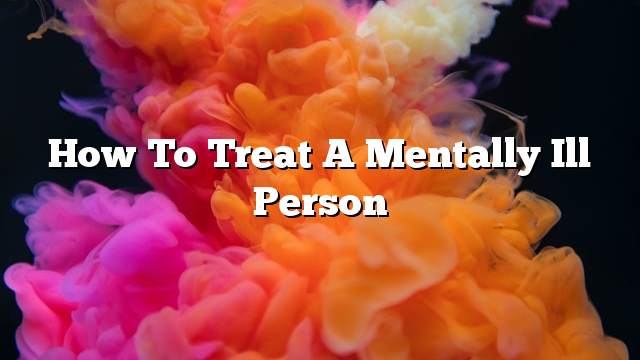Mental illness
No one is free from mental illness, jealousy, depression, anxiety, fear, uncertainty, tension, and obsessive compulsive disorder are categorized as psychological illness. It can be defined as reaching the limit where the person hates himself, pretending to be idle and lazy, .
the reasons
- Psychiatric illness may arise as a result of dislike of certain people or may be the result of inconvenience and chaos. Some people prefer to live alone while moving away from all sides.
- The lack of appropriate circumstances, and this imbalance from which he can not adapt to the external environment, which makes him in a debate and a permanent conflict with his community, and therefore keen patient psychological to search for appropriate conditions for him as if fleeing from reality to sleep.
- The harsh past with which he lived and raised, as if he was forced to remain silent most of the time and punished in the event of a violation of orders, which makes the child inhibits his feelings and does not reflect what is in his mind, in addition to neglect during the stages of growth.
- Genes are inherited from parents and grandparents, and rare cases can be treated quickly.
- Psychological disorders resulting from the hormonal changes associated with adolescence.
- Disorders in eating.
- Sexual assault.
- Dysfunction in the cytoskeletons and neurotransmitters such as serotonin, dopamine, glutamate, and norepinephrine, resulting in neurological disorders.
- Negative life experiences, or that tired life of fatigue and stress.
- Problems of social injustice and poverty, and racial persecutions.
Guidance for the Psychiatric Patient
Treatment is the most appropriate choice for many mental disorders. Behavioral therapy is usually used to treat disorders, which is based on how the thinking and behavior resulting from the disorder. There are also treatments based on the human method, and the methods used in the treatment of mental illness and depression:
- Try as much as possible not to sit alone, and mix with people and around you.
- Try to express your feelings by writing.
- Get out of your daily routine and try new things, such as changing the color of clothes you wear. Research and studies have pointed to the role of positive colors on changing souls.
- Play your favorite hobbies.
- Sit with children and they are able to give you tremendous positive energy for their faces of innocence.
- Stay away from where you live for a more comfortable place for a while even if it is short.
- Get support from family and friends.
- Consult your doctor and take medication to treat anxiety and depression.
- Asylum for ECT.
- Committed to eating healthy foods as prescribed by the doctor.
Guidelines for dealing with a psychiatric patient
- Accompanying a doctor with a specialist face, this will help to identify his illness and try to cure him.
- Awareness and education on the subject of mental illness and how to deal with it professionally, this will help to balance the care of the patient and psychological life and continue normal life.
- Patience and support from friends and family, and not to try to pressure him and ask to change his actions, he is acting on what he sees is true.
- Trying to correct the ideas he has and show the real and unreal things as some people try to harm him.
- Do not miss any promise you made to the patient.
- Follow the medicines prescribed by the doctor and make sure that he is taking them in due time.
- You have to let him know that you are with him in all his things and that you will never let him down and leave him.
